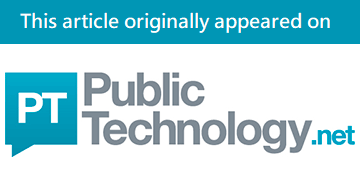Government communications experts will deploy technology intended to track disinformation trends and deepfakes circulated on social media sites in Russia and around the world .
The Cabinet Office has signed a deal with Storyzy – a Paris-based specialist fake news-detection firm whose technology will provide a “disinformation platform” which will support the work of the department's Government Communication Service International unit.

GCSI will use the tool to “track and identity disinformation trends and false actors”, according to the text of the contract. The document reveals that the software will provide round-the-clock monitoring of sites including Twitter, Facebook, TikTok, Telegram, and VK – the most popular social network in Russia.
The artificial intelligence-powered software will scan these platforms for disinformation and misinformation – including written, audio, pictorial, and video content – and related to various terms that will be specified by the government comms team. Translation into English from French, Spanish and Russian – and potentially other languages – and analysis of posts flagged by the tool should be provided in real time, the contract adds.
The intention is that the service “enables… analysts to conduct thematic analysis on social media content using search queries covering issues such as democracy, cybersecurity, Russia, mis- and disinformation and vaccine hesitancy”.
The contract states that GCSI hopes to gain “an understanding of key prevailing digital and social media narratives in a particular context” as well as insight into the “reach, volume, sentiment and engagement of news and digital and social media posts” and the “structural, temporal and semantic techniques” common in disinformation. The technology will also be asked to detect deepfake content and other posts created by generative AI systems.
Analysis provided by Storyzy should provide details of “key narratives from hostile actors and where these narratives are landing”, while also offering an “evaluation of campaigns against disinformation effectiveness and how they are being portrayed in digital and social media”, according to the contract.
The real-time analysis will help "to ensure international communications are underpinned by robust analysis and insight", as well as supporting domestic priorities, the contract states.
"GCSI needs social media disinformation analysis capability for both its international work with partners but also to support domestic priorities by analysing media globally," it adds. "This supports the Cabinet Office strategic communications priorities through strengthening global communications and networks to collectively tackle global issues including tracking disinformation, cyber insecurity and vaccine hesitancy.”
Disinformation analysis is also used by GCSI "to understand how UK issues are being positioned globally", the contract adds.
"GCSI need to have capacity to respond to significant events in the UK and to conduct rapid monitoring on how this is being communicated and landing globally," it states.
The contract says GCSI also uses social media and media analysis to respond to emergent crises, such as the Israel/OPT (occupied Palestinian territories) conflict and the ongoing Red Sea crisis in 2023-24.
The Storyzy agreement, which commenced on 21 March and runs for an initial term of one year, will support a single user at GCSI to use the software company’s technology, which the firm describes as a “SaaS platform that helps identify and analyse the global spread of online disinformation, [and which] classifies and assesses news sources using both cutting-edge AI and human expertise”.
The contract specifies that the service should be up and running within a week of the deal coming into effect. The deal is worth £36,000 – a figure that could double if the Cabinet Office enacts an optional one-year extension, or rise further still if the engagement is expanded to cover more users.
GCSI forms part of the wider Government Communications Service, which comprises 7,000 civil servants across government. The international team describes its remit as being to “work with foreign governments to build their communications capability”.